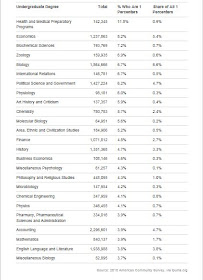Tariffs are generally imposed to keep the price of a good higher than it normally would be in order to "protect" a domestic producer from lower priced foreign goods. But what if there is no, or very little, domestic production of the good in the first place? Why tax something that is purchased by a wide majority of lower income people to benefit a relatively small number of producers?
In 2009 a hefty 35% tariff was levied on low-priced tires imported from China, at the request of the US Steel Workers Union. At that time I blogged the possible effects this would have on the industry and consumers (HERE). Looky here at what has happened to imports of tires from various location.
 |
| Source : Wall Street Journal |
As I have noted with low-priced shoes, tariffs imposed on goods that have little domestic production and support relatively few jobs, are bad for the poor. Want to help the poor? Review and repeal unnecessary tariffs.
Get-Tough Policy on Chinese Tires Falls Flat
"The tariffs didn't have any material impact on our North American business," says Keith Price, a spokesman for Goodyear Tire & Rubber Co., echoing a sentiment expressed by some other manufacturers. "The stuff coming in from China is primarily low end. We got out of that market years go."
After the tariff was enacted in 2009—35% in the first year—imports from China did in fact drop sharply. But that business quickly shifted to Thailand, Indonesia, Mexico and elsewhere. Tire imports to the U.S. from these countries rocketed, proving once again that the world has become one big fungible production platform: If it doesn't get built in China and it's too expensive to make in the U.S., it will get made in a cheap locale somewhere else.
"So far as saving American jobs, it just isn't working," says Roy Littlefield of the Tire Industry Association, which has 6,000 members. "And it really hurt a lot of people in the industry—smaller businesses that geared up to bring these tires in from China."
"This is a China tire, it costs me $69 today," says the owner of Cybert Tire & Car Care in New York City. "Before it cost $39." A big part of that increase: The fat tariff the U.S. has placed on Chinese tires.
"It all gets passed to the customer," says Mr. Everett.
Mr. Everett, the tire shop owner, says prices jumped not just for China-made tires but for tires made in the U.S., too. Wholesalers, he said, used the cover of the tariff to raise prices across the board. Bob Ulrich, editor of Modern Tire Dealer, a trade publication, says prices are up 29% in the replacement market since 2009...







